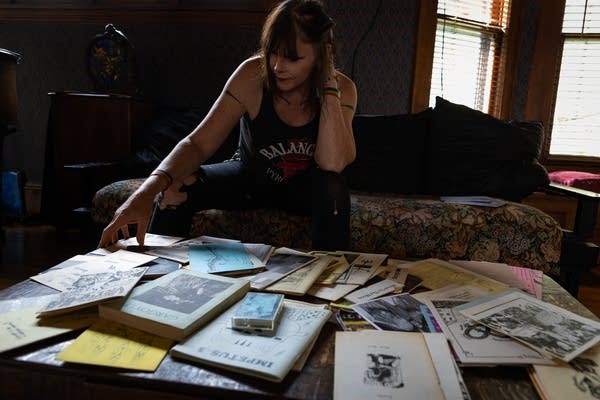For LGBTQ+ people in Minneapolis punk scene, mass shooting violated safe haven

Venus DeMars sorts through her collection of punk and DIY zines she acquired throughout her career as an artist and musician in her south Minneapolis home on Thursday.
Ben Hovland | MPR News
Go Deeper.
Create an account or log in to save stories.
Like this?
Thanks for liking this story! We have added it to a list of your favorite stories.


